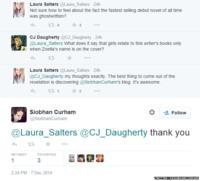Old laptop batteries still have enough life in them to power homes in slums, researchers have said.
An IBM study analysed a sample of discarded batteries and found 70% had enough power to keep an LED light on more than four hours a day for a year.
Researchers said using discarded batteries is cheaper than existing power options, and also helps deal with the mounting e-waste problem.
The concept was trialled in the Indian city of Bangalore this year.
The adapted power packs are expected to prove popular with street vendors, who are not on the electric grid, as well as poor families living in slums.
The research, which comes from IBM's India-based research team, will be discussed at a conference in San Jose, California, according to Technology Review from the Massachusetts Institute of Technology.
CheapThe IBM team created what they called an UrJar - a device that uses lithium-ion cells from the old batteries to power low-energy DC devices, such as a light.
The researchers are aiming to help the approximately 400 million people in India who are off grid.
Options such as solar power are considerably more expensive and logistically more cumbersome at the moment.
If the UrJar, which would last a year, is made in sufficiently large volume, researchers estimate the price per unit at just 600 rupees (about £7).
They conclude: "UrJar has the potential to channel e-waste towards the alleviation of energy poverty, thus simultaneously providing a sustainable solution for both problems."
Feedback from the trial was positive, the team said. Among the improvements suggested by users was a call for rat-resistant wires.
UrgentE-waste is a major problem, particularly in the developing world, where the majority of the West's unwanted technology ends up.
IBM's research said 142,000 computers are thrown away in the US daily - around 50 million a year.
India's predicament is particularly urgent. Not only does the country receive a lot of e-waste from other countries, but with a booming IT market it is also generating huge amounts of its own - around 32 tonnes a day, according to one estimate.
Computer Aid, a UK-based charity that redistributes unwanted old technology, welcomed the initiative.
"We think that this is an excellent initiative as it is in line with our practice of reusing and refurbishing rather than recycling," said Keith Sonnet, its chief executive.
"Refurbishing has definitely a more positive impact on the environment and we should encourage more companies to adopt this practice."
Follow Dave Lee on Twitter @DaveLeeBBC






